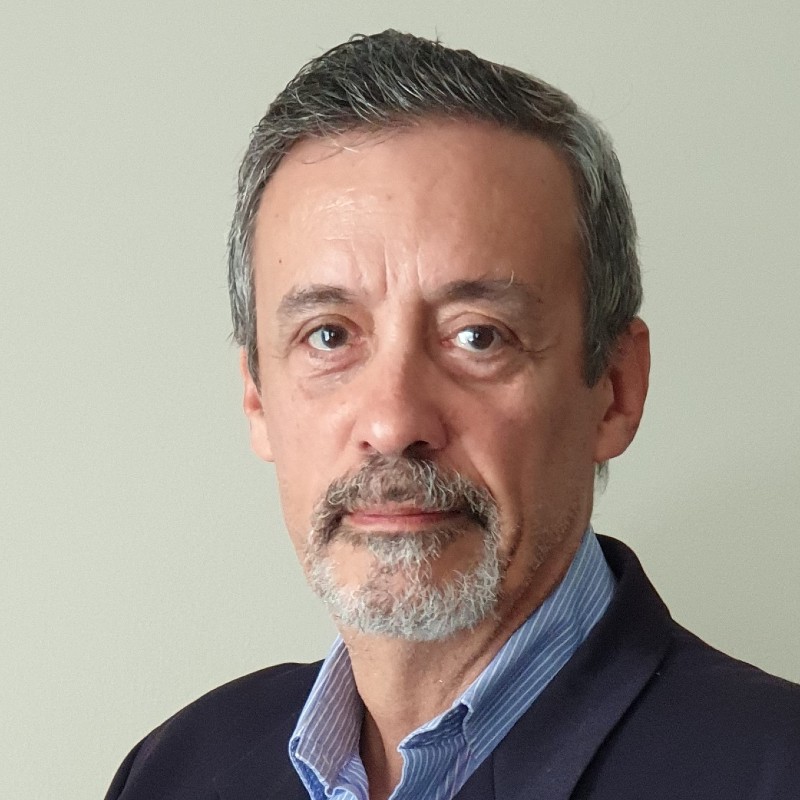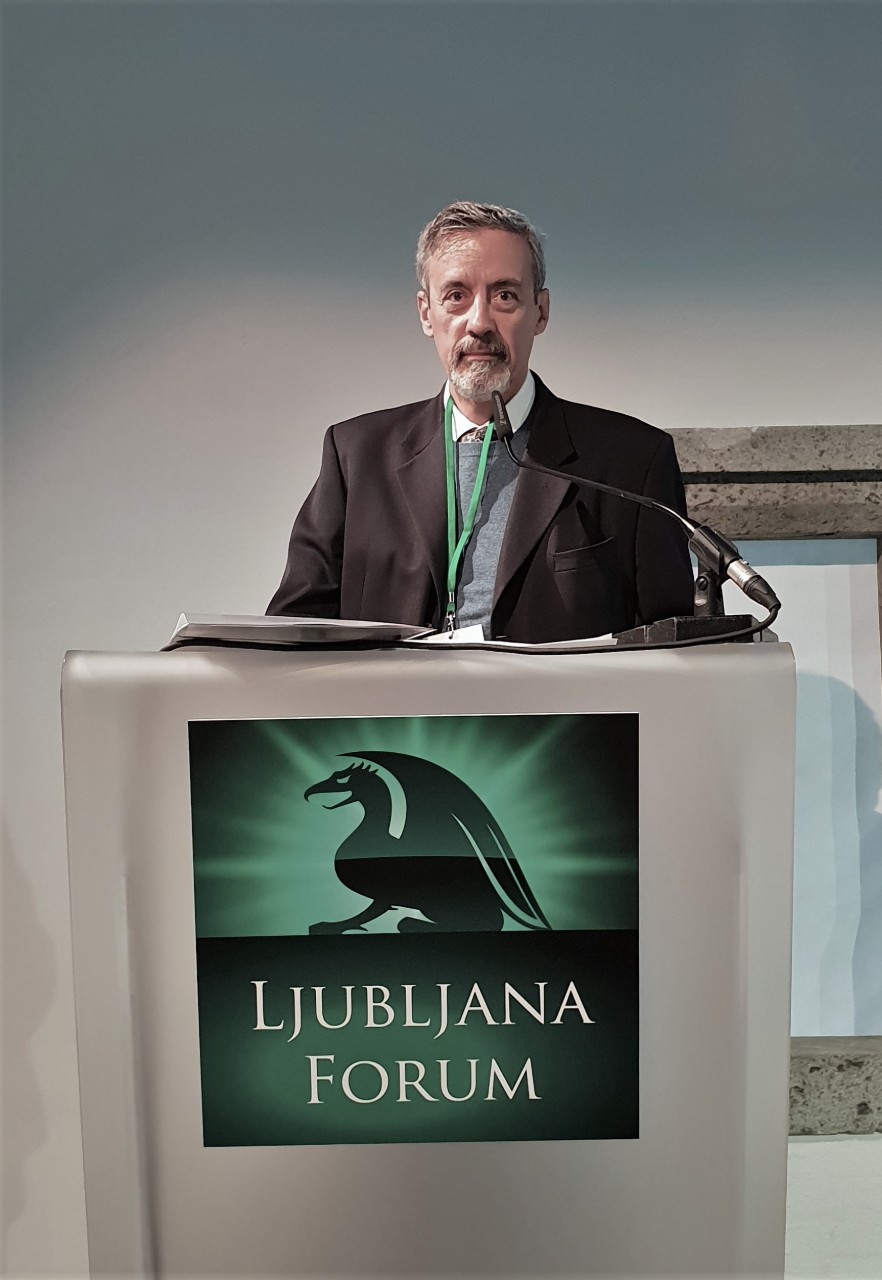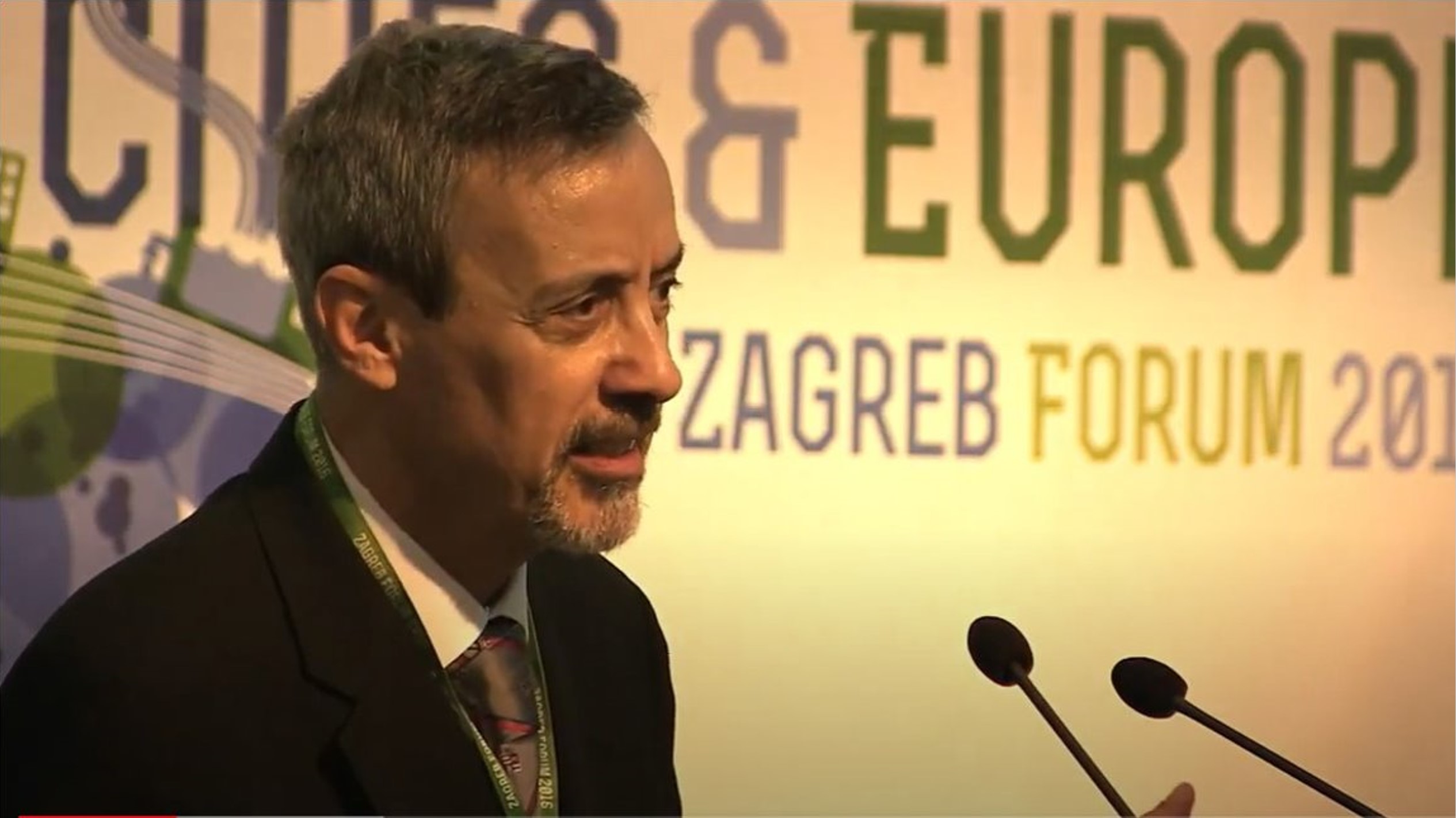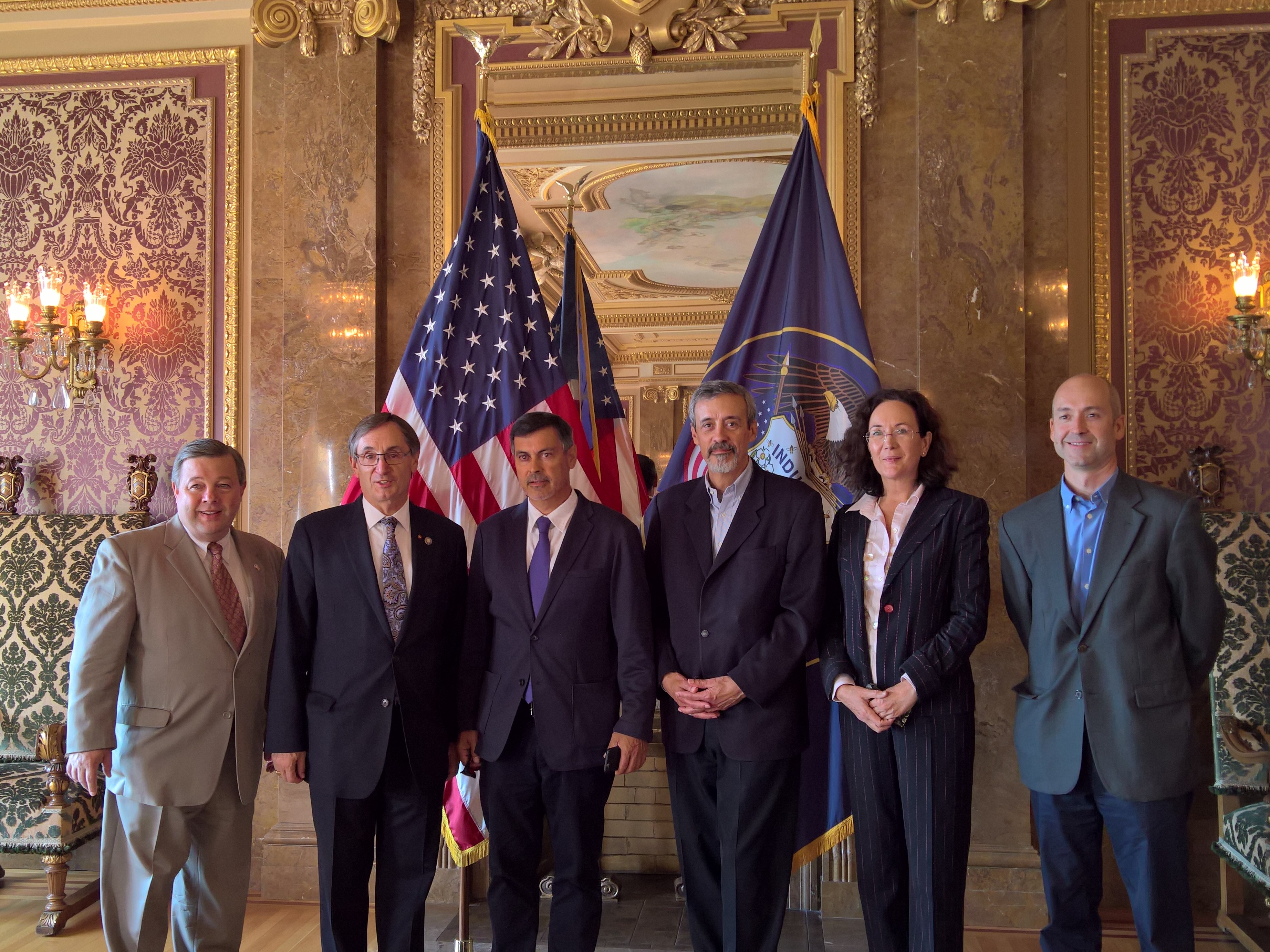
Lorenzo Madrid
VP Strategic Partnerships at Wellness Tech GroupWith over 30 years of experience in the Information Technology sector, Lorenzo Madrid is vice-president of Strategic Partnerships at Wellness Tech Group, a spanish company specializing in technologies for Smart City.
In addition, he is President of Smart City Business Institute America, a Think Tank of Smart Cities, believing that "using the right technology and applying healthy principles of governance are two critical elements for the implementation of a successful, sustainable and resilient Smart City".
International Consultant for Smart Cities and with several books and articles published on this topic, Lorenzo Madrid is one of the special guests at PARTTEAM & OEMKIOSKS Connecting Stories.
1. With a vast curriculum in the area of Information Technologies, can you tell us a little about your journey and your professional experience?
I have over 30 years of experience in the public/private sectors, 11 of which at Microsoft, as a Senior Executive, with global responsibilities, where I supervised IT projects for governments in 53 countries. More recently, I have managed Smart City projects for Istanbul, Rio de Janeiro and Cape Town. I also have strong ties with the academy. I am a member of the Center for Technology in Government – at New York State University – and I was also invited by the United Nations University in Guimarães for a research project in Smart City. I have published books and articles on Smart Cities, Government Transformation and I have written about the link and impact that IT investments have on socio-economic development. I also acted as CIO in the Department of Education in São Paulo, Brazil, where I was responsible for IT systems and networks, which offer Internet services to six million students and 300 thousand teachers.
I am currently involved in some Smart City projects in Asia and Latin America and I advise some companies in the sector, such as Wellness TechGroup, which has solutions for Smart Cities.

2. How does Wellness TechGroup contribute to the development of Smart Cities?
Wellness TechGroup is a spanish company that researches and develops technologies and also manufactures different products. The goal is the implementation of smart solutions, not only for cities, but also for industries and agriculture. These products aim to meet the areas of energy efficiency, physical and cyber security and waste management. The same products also offer a platform for automated management of industries, cities or territories.
3. You are also president of Smart City Business Institute America. What is this organization and what are its objectives?
The Smart City Business Institute America is a non-profit organization that aims to promote and encourage government actions aimed at developing Smart Cities initiatives. This is done through lectures, webinars, courses and consulting projects. Smart City Business has associates in several countries around the world and we have already participated in Smart City projects in five continents.
4. In your opinion, what is the best definition for the concept of Smart Cities?
It is very difficult to define what Smart City is. In a recent paper I presented at the International Congress of Electronic Governance (ICEGOV-2019), organized by the United Nations University in Melbourne, Australia, we identified over 100 definitions for Smart Cities. However, one of my favorites, for its simplicity and high-level positioning, is the definition proposed by the ITU (International Telecomunications Union), which says: "An intelligent and sustainable city is an innovative city that uses information and communication technologies (ICT) and other means to improve the quality of life, the efficiency of urban operation and services and competitiveness, while ensuring that it meets the needs of present and future generations in relation to economic, social, environmental and cultural aspects".
5. As an International Consultant for Smart Cities, how can Smart Cities improve the quality of life of a population?
There are many services and processes within a city that can be improved from the concepts of an intelligent city. In the work I mentioned above, we included a model that covers 11 initiatives that a Smart City can adopt, collectively or individually, to improve the quality of life of the population. In the model the following themes are covered: Transportation/Mobility, Environment, Tourism/Culture, Health, Water Resources, Sustainable Energy, Telecommunications and Systems, Economic Development, Security, eGOV, Education.

For each of these macro initiatives, the city can develop sub-topics and thus respond to specific needs to improve the quality of life. For example, in Mobility, the city can promote mechanisms to encourage the use of shared transportation and thus reduce traffic. At the same time, it reduces the impact of carbon emissions (Environment). It can also simplify the access to medical services, implanting stations for Telemedicine assistance. There are countless initiatives that a city can develop, the result of which has a direct impact on the quality of life of the population. In general, there are several initiatives that can be applied and each one of them contributes to the whole in the construction of a more intelligent and fairer city for its habitants.
6. What are the biggest challenges that can be found in the development of a smart city?
Experience has shown me that the first barrier to building an intelligent city is lack of resources. And when I talk about resources, I don't mean just capital or financial resources. I'm also talking about human resources, capable of planning, managing the execution, operating and maintaining all the infrastructure and systems needed for a Smart City. These resources have to be available, they need to respond to complex needs coming from new technologies and working methods. We also have another major challenge, which is the governance process of the whole Smart City project.

The process of making the right decisions involves multiple actors, hundreds of stakeholders and thousands of citizens, so it will affect all aspects of a city. It is therefore complex and delicately balanced, requiring strong involvement of political leaders to be successful. The third challenging element is the agility in the elaboration of public policies that meet the demands of managers and citizens, so that they can develop the solutions that Smart City must offer. Therefore, this tripod (Public Policies, Governance and Resources) is responsible for the success or failure of a Smart City development project.
7. What relationship exists (or should exist) between a Smart City and sustainable development?
MA distinction is often made between being a Smart City and being a sustainable city. The first one would have a technological inclination, while the second one would have environmental concerns. However, nowadays, a technological Smart City is not really "Smart" if it does not also take care of its sustainability. We should not separate one concept from another. The very definition of Smart City made by ITU already makes this explicit right from the start.
8. With several articles and books published, what messages do you intend to transmit?
The main message is to summarize learning acquired over many years as a manager in the different projects in which I participated, both in the public and private areas. We have made a lot of mistakes and also learned a lot over the years. The book "Smart City 3.0 – A new way of governing" indicates some paths that led to successful projects, also pointing out mistakes made, so that readers can avoid them when they come face to face with the same problem.
9. As PARTTEAM & OEMKIOSKS is a company that has the possibility to produce digital billboards, multimedia kiosks and other technological solutions for smart cities, what relevance, in your opinion, does digital have for the development of Smart Cities?
I usually say that digital solutions for infrastructure are the arms of a Smart City. Without them, it is impossible to serve the citizens and the community well. However, besides the arms, an intelligent city also needs telecommunications and systems that allow it to make an intelligent and automated management. These components would be the legs and the brain of a Smart City.
Connecting Stories is a new editorial space led by PARTTEAM & OEMKIOSKS which consists of conducting exclusive interviews, directed at influential personalities who work in different sectors of activity.
The project, conceived by PARTTEAM & OEMKIOSKS, includes the publication of success stories, through small interviews with influencers who want to share details about their projects, opinions, plans for the future, among other subjects.
The idea is to connect stories, share knowledge, develop networking and generate content that can provide new visions, opportunities and ideas.
Founded in 2000, PARTTEAM & OEMKIOSKS is a world renowned Portuguese IT company, manufacturer of indoor and outdoor multimedia kiosks, self-service equipment, digital billboards, interactive tables and other digital solutions, for all types of sectors and industries. To know more about our story, click here.
